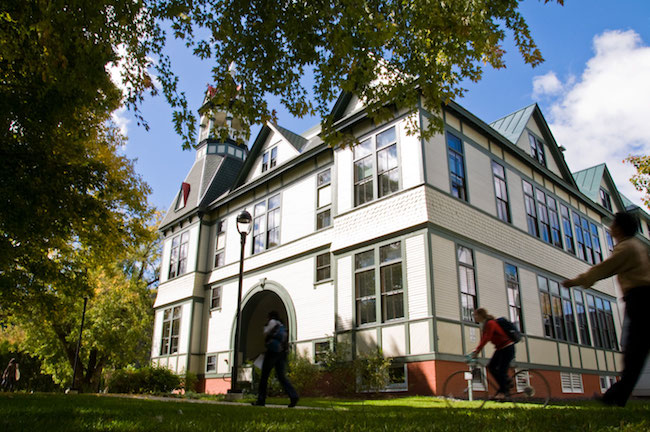
Vermont Law School
Vermont Law Expands Scholarship to Support Indigenous Students
Vermont Law and Graduate School is expanding its scholarship eligibility to make legal education more widely accessible to Indigenous students.
“We are pleased to announce during this Abenaki Recognition and Heritage Week our commitment to supporting the Indigenous people of Vermont,” says Vermont Law and Graduate School President Rod Smolla in a press release. “As a concrete first step in strengthening our relationship, we are pleased to announce that an annual scholarship supporting an Indigenous Vermont student’s pursuit of a legal degree will now be available immediately.”
FIRST NATIONS SCHOLARSHIP
The law school’s First Nations Scholarship covers full or partial tuition for one or more Indigenous students per year pursuing programs such as the law school’s Juris Doctor legal degrees or master’s degrees offered by the School for the Environment and Center for Justice Reform.
The scholarship has previously only been available to students who belong to federally recognized tribes. With the recently expanded eligibility, however, the scholarship will now also be available to students from state-recognized tribes as well.
GREATER ACCESS TO HIGHER EDUCATION
Traditionally, higher education has been out of reach for many Indigenous students. The National Center for Education Statistics reports that in 2020, American Indian or Alaska Native 18- to 24-year-olds had the lowest college enrollment rate among all ethnic groups, standing at only 22%.
The recent expansion of the First Nations Scholarship is a step towards making higher education more accessible.
“Supporting students from state and federally recognized tribes is an important step towards achieving equity in education and beyond,” the college’s Native American Law Students Association tells VTDigger. “Providing financial resources is vital, and we hope the school will continue to foster and develop an environment where Indigenous students feel belonging and inclusion.”
“Anything people can do to help uplift disadvantaged communities, and anytime you can uplift people out of poverty, that is a good thing,” Don Stevens, chief of the Nulhegan Band of the Coosuk Abenaki Nation, tells VTDigger. “I really love to celebrate uplifting people, and there’s not enough of that.”
Sources: Vermont Law, VTDigger, National Center for Education Statistics

Questions about this article? Email us or leave a comment below.